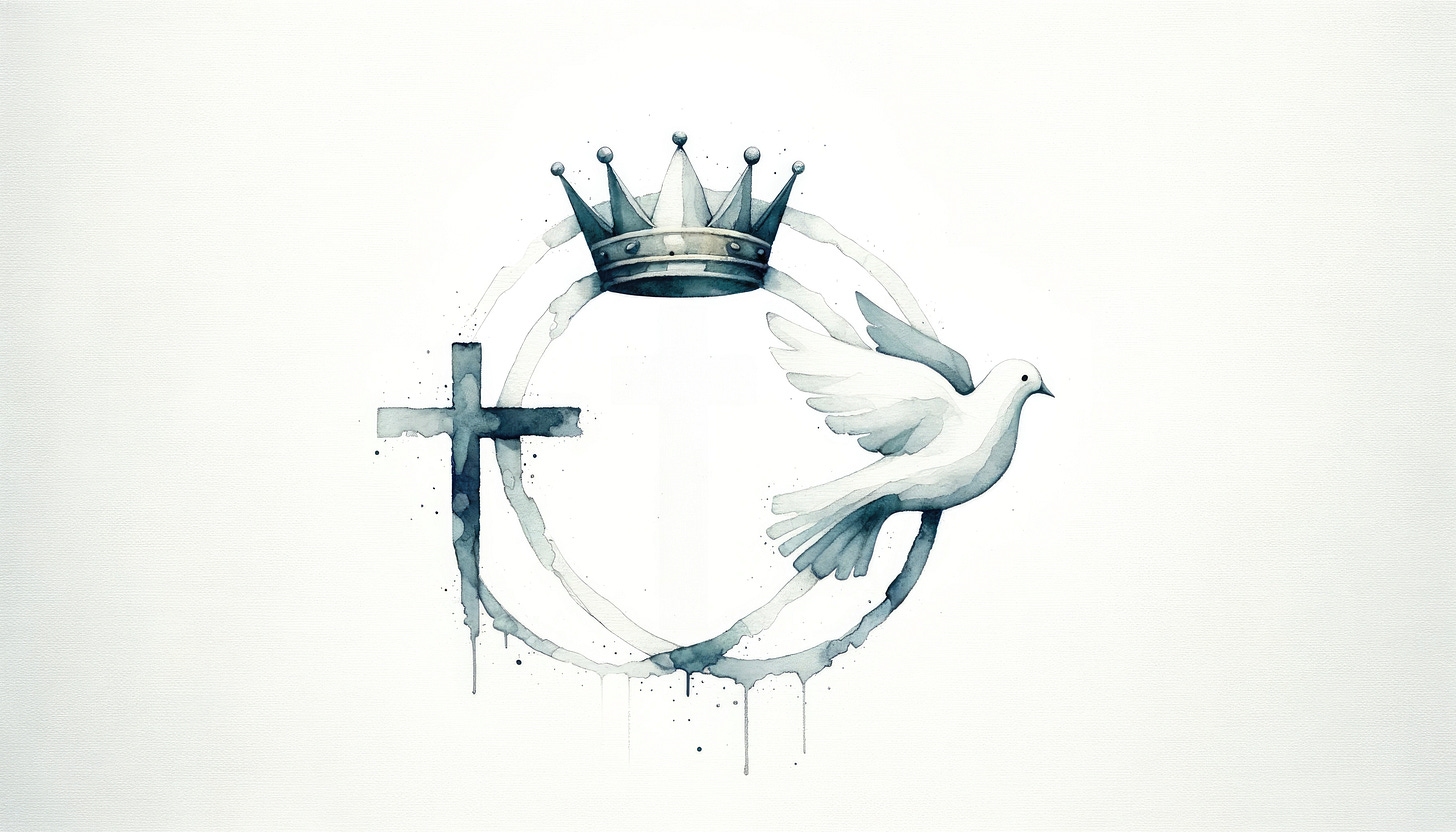Was Jesus Always a Man?
Exploring the pre-existence of Christ before the Incarnation
I was discussing my soon-to-be-released book, The Skeptical Catholic, over dinner tonight at The Cheesecake Factory with a friend when he asked me an unexpected question: "Do you think Joseph was God?" At first, I wasn’t sure where he was going with this, but he clarified: "Well, Joseph was called Jesus’ father. If Jesus is God, wouldn’t that make Joseph divine too?" I’ve had discussions about Jesus being 100% divine while also being 100% human before, but this was the first time I ever heard someone speculate about Joseph and whether or not he could be “God”.
This was a perfect opportunity to introduce my friend to the mystery of the Trinity. I explained that Joseph was Jesus’ earthly, adoptive father, but Jesus' true Father is God. That led to another question: "So, was Jesus with God before He was born to Mary? And if so, what form did He have?"
I paused. I knew the answer, but putting it into words—especially over steak tacos—wasn’t as easy as I expected. So, here’s what I should have said:
Before Jesus was born of the Virgin Mary, He existed eternally as the Son of God—not as a human being, but as the Divine Word (Logos).
"In the beginning was the Word, and the Word was with God, and the Word was God." (John 1:1)
This means that before the Incarnation, Jesus was fully divine but did not yet have a human nature. He was not “Jesus of Nazareth” in heaven before His birth. Rather, He existed as the eternal Word of God, united with the Father and the Holy Spirit.
Did Jesus Have a Body Before Birth?
No. Before the Incarnation, Jesus did not have a human body, a face, or even a beard waiting to be grown! The Son was like the Father and the Holy Spirit—purely divine, without a physical form. This is why the Incarnation is so profound:
"The Word became flesh and made His dwelling among us." (John 1:14)
At the moment of conception in Mary’s womb, Jesus assumed a human nature. He took on a body, a soul, and all that makes us human—without losing His divinity. The Incarnation didn’t change who He was; it added something new to His eternal existence: a fully human nature.
What About After the Resurrection?
Here’s where it gets even more incredible. After Jesus died and rose again, He didn’t shed His human nature—He glorified it. The same Jesus who walked the earth, ate with His disciples, and showed them His wounds ascended into heaven with His glorified body.
This means that before the Incarnation, He existed only as divine Spirit. But now, for all eternity, Jesus is both fully God and fully man—a reality that had never existed before.
The Mystery of It All
My friend’s question at dinner was simple, but it pointed to one of the greatest mysteries of Christianity. How can someone be eternal and yet take on a beginning in time? How can God become man without ceasing to be God?
The answer isn’t something we can fully comprehend—it’s something we receive in faith. The early Church wrestled with these questions for centuries, and the doctrine of the Trinity was revealed not by human speculation, but by God Himself.
If we believe that Jesus Christ is the same yesterday, today, and forever (Hebrews 13:8), then we can trust that the Word who was with God from the beginning is the same Word who walked among us, died for us, and now reigns in glory.
And maybe next time, I’ll have a better answer ready before the tacos arrive.
Let me know what you think. What could I have said differently? Did my response hit the mark? Or did I miss the saying what was most important?




A few things I want to share. First, putting steak in a taco is a mortal sin. Go to confession.
Also, kudos! This was a great idea for a post and you made it substantial, interesting and informative. Really nicely done!
Finally, a few tidbits for those who may be interested:
Joseph was lawfully (by the Law of God) married to the mother of Jesus, which makes him, lawfully, Jesus father. Not his biological father, but his father by Law and rights, which is why Jesus had to be obedient to him as well as to Mary, his biological mother.
In some cultures even today there is no such thing as a "step father". Step-parents are still called Mother/Father and it's considered a great disrespect to throw the word "Step" in there.
A few points that may help to grasp the mystery of the twofold nature of Jesus as both God and man—at least as much as it can be grasped by the human intellect: We are a composite of physical form (the body) and spiritual substance (the soul). We are not mostly a body with a soul incidentally poured into it. We are 100% body and 100% soul. Both the body and the soul have a beginning (they are both finite) but human dignity, essential to the soul, comes from God own nature, and therefor has an eternal character. Just some things to consider there. Jesus being both God and Man will always be a mystery to us, until we're in Heaven. But it isn't as far-mysterious as it seems, when you consider the nature of human beings.
Also of note: God could not have become a dog. The two natures are not at all compatible. For God to become a dog he would have had to create a different reality where dogs have a different/compatible nature. That God could become a man says something very profound about the nature and preeminence of human beings in the grand scheme of all that God has made.